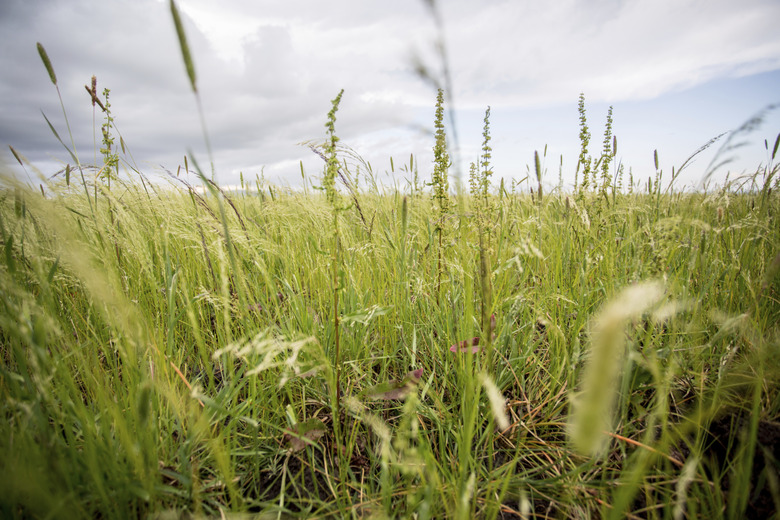How To Grow Teff Grain
Unique among cultivated grains, teff (Eragrostis tef) is the only member of the lovegrass genus that's grown for food. Native to Africa, tiny teff seeds cook quickly into a light, nutty-tasting dish or are ground into flour.
Unique among cultivated grains, teff (Eragrostis tef) is the only member of the lovegrass genus that's grown for food. Native to Africa, tiny teff seeds cook quickly into a light, nutty-tasting dish or are ground into flour. Growing to about 3 feet tall, teff forms a clump of narrow, curved leaves with flexible seed heads. Plants have ornamental value as container plants, in borders and in mass plantings. Seeds vary in color from white to tan, brown and reddish purple.
Soil and Light
Teff tolerates a wide variety of soil types, including sandy, loamy and clay, and grows in everything from acid to alkaline conditions. Because the seed is so fine, the soil needs to be broken up well so it has a fine texture. Teff grows in both dry and moist soil, producing seeds in deserts as well as waterlogged places. If you're growing teff in pots, select a quality potting mix that contains perlite or vermiculite rather than garden soil. Teff doesn't tolerate shade, needing full sun for good growth.
- Unique among cultivated grains, teff (Eragrostis tef) is the only member of the lovegrass genus that's grown for food.
Temperature and Water
Teff, an annual grass that is sensitive to frost, grows in U.S. Department of Agriculture plant hardiness zones 8 through 11. If sowing teff outdoors, wait until all danger of frost has passed and the soil is warmed to at least 65 degrees F. Following germination, teff needs growing temperatures of 80 degrees or higher. In areas with cool summers, start teff indoors about six weeks before the last frost date, placing pots or flats in a sunny window, under grow lights or in a greenhouse, and transplant seedlings into larger pots or the ground.
Depth and Spacing
Before sowing teff seeds, create a firm surface to receive them. In the garden, tamp the soil firmly in place to the degree that your foot won't indent the soil. For seeds started indoors, use 4-inch-wide and deep pots or nursery flats, both with holes in the bottom. Fill the container with potting mix within 1 inch of the rim, and press down the soil to level and firm the surface. Scatter teff seeds thinly on the surface, covering them with 1/8 to 1/4 inch of soil, tamping the soil down over the seeds. Water the planted seeds thoroughly.
- Teff, an annual grass that is sensitive to frost, grows in U.S. Department of Agriculture plant hardiness zones 8 through 11.
- In areas with cool summers, start teff indoors about six weeks before the last frost date, placing pots or flats in a sunny window, under grow lights or in a greenhouse, and transplant seedlings into larger pots or the ground.
Other Considerations
Teff seeds usually sprout quickly, often in less than a week. For seedlings grown indoors, transfer individual plants to 3-inch-wide pots with drainage holes when they have several leaves and the roots are well-developed. Keep the potting mix moist but not soggy. When teff plants fill the pots, transplant seedlings into the garden bed or a larger container. Outdoors, thin seedlings to the desired amount of coverage and allow the soil to partially dry between waterings. The plant has a shallow root system and doesn't compete well with weeds, so remove weeds as you see them. Teff matures in 10 to 12 weeks. If soil is moderately fertile, teff usually doesn't need fertilizer. Teff matures in about four months where summers are warm.
- Teff seeds usually sprout quickly, often in less than a week.
- Teff matures in about four months where summers are warm.
